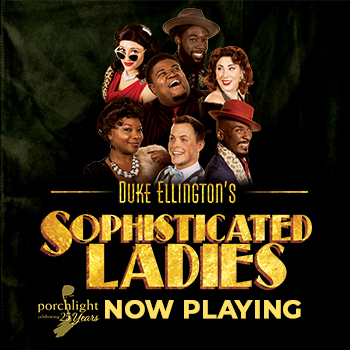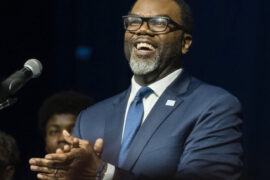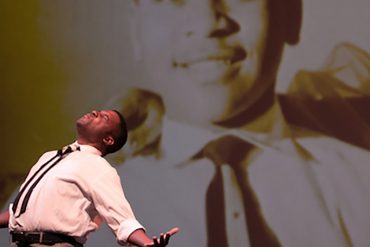Porchlight Music Theatre’s production of Sophisticated Ladies will make your heart sing. The swing music of Duke Ellington makes great theater. One music critic said, “This isn’t a concert; it’s an experience.”
With show-stopping costumes by Theresa Ham and wonderful performances directed and choreographed by Brenda Didier and Florence Walker-Harris, and musical direction by Jermaine Hill, Sophisticated Ladies is a must-see!
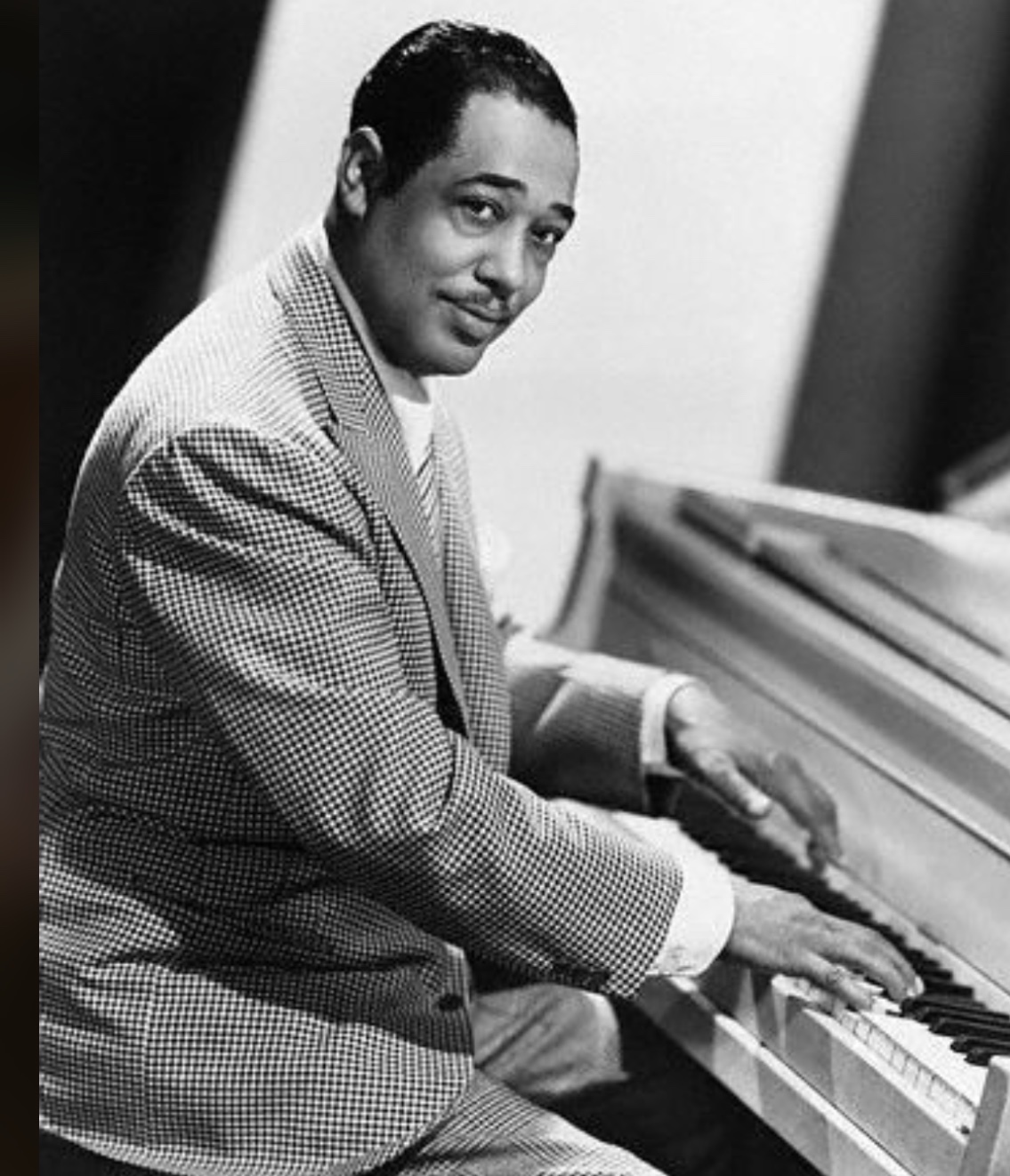
At two hours, this show packs 33 of Sir Duke’s songs into a tribute deserving of rousing applause. It will transport the audience on a high-stepping, dynamic journey through the life and times of this great showman. Take a trip to Harlem’s legendary Cotton Club, Carnegie Hall, on Broadway, in Hollywood and around the world through the music of Duke Ellington’s Sophisticated Ladies.
N’DIGO sat with Co-Directors and Choreographers Florence Walker-Harris and Brenda Didler, Musical Director/Conductor Jermaine Hill, and various talented performers from the cast and asked what makes Sophisticated Ladies special.
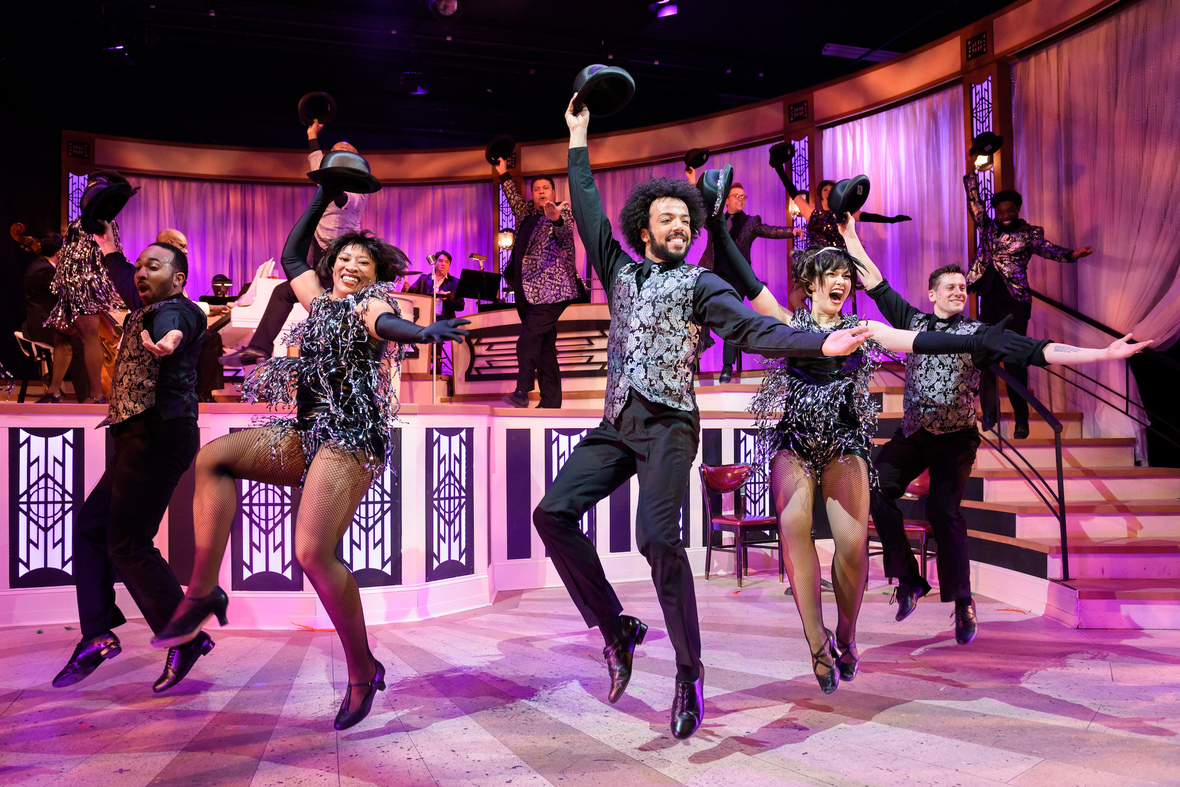
N’DIGO: Why are you performing a salute to Duke Ellington’s music at this time?
Co-Director and Choreographer Florence Walker-Harris: Today’s music is consumed in an era of receptivity on a wide scale of artistic expression, but also having a sense of uncertainty. I thought it was time to re-introduce a classic, a legend. The timelessness that the brilliant composer, Sir Duke Ellington, once shared needs to be once again embraced by the next generation and generations to follow. By giving the audience the music and movement (or song and dance) this allows dialogue for the curiosity, love and admiration for a great man and his music.
We – Brenda, Jermain and myself – believe that the innate gifts of this one man need and deservs to be celebrated and revered. Sir Duke was one that always talked about being honest and being your true self. He said “every time God’s children have thrown away fear in pursuit of honesty – trying to communicate themselves, understood or not – miracles have happened.” This message is still so relevant for many profound artists that were influenced by Duke Ellington, such as the greats like Stevie Wonder, in a way that reminds us all to be who we are, regardless of how the world may view us.
Duke Ellington said, “How can anyone expect to be understood unless he presents his thoughts with complete honesty? This situation is unfair because it asks too much of the world. In effect, we say, ‘I don’t dare show you what I am because I don’t trust you for a minute but please love me anyway because I so need you to. And, of course, if you don’t love me anyway, you’re a dirty dog, just as I suspected, so I was right in the first place.’ Yet, every time God’s children have thrown away fear in pursuit of honesty-trying to communicate themselves, understood or not, miracles have happened.”
What do you hope audiences get from Sophisticated Ladies?
Co-Director and Choreographer Brenda Didier: I want our audiences to have an experience. I want them to have an education on Duke and his music and his range, emotion and intensity to move the listener and the viewer. I especially want our younger generation to experience Duke and his incredible jazz influence. If they leave humming, dancing and smiling- that is it!
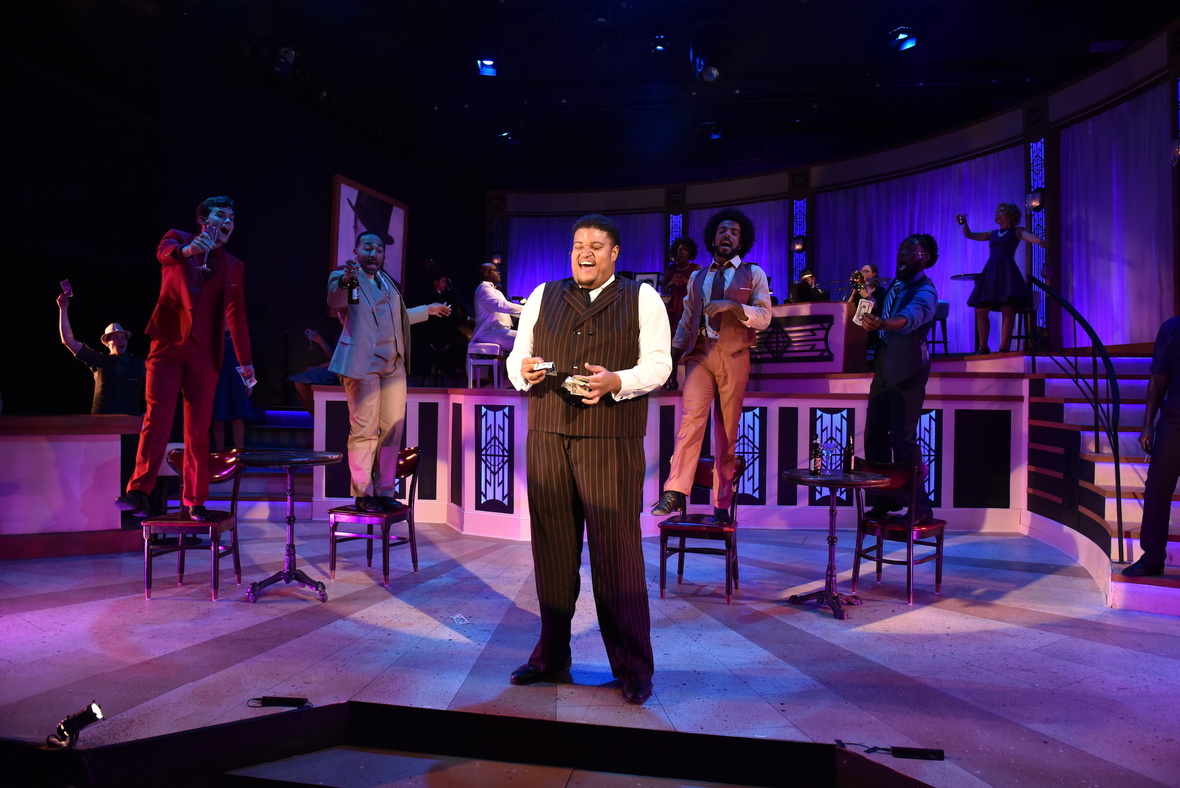
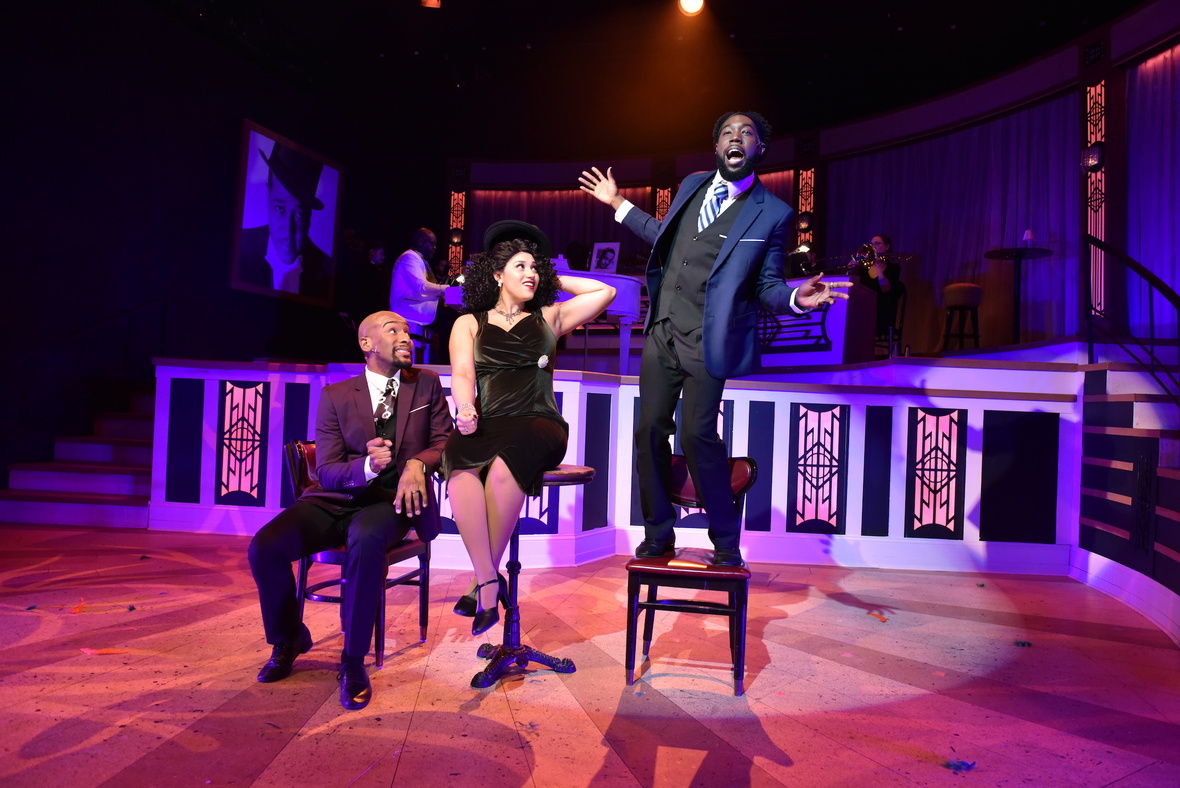
What contributions did Ellington make to the world of music, in your opinion?
Music Director/Conductor Jermaine Hill: I think Duke Ellington wrote some of the most iconic music in the American Songbook. The list of his early hits, which became standards, are highlighted in our production. His later works were informed by his constant interest and research in other composers, other musics, and his tireless drive to compose (he composed nearly every day with some 1,000 songs composed, many of which were never transcribed). He perfected big band orchestrating and influenced countless composers and arrangers.
How would you describe Duke Ellington, the man?
Jermaine Hill: Though I am no Duke Ellington scholar, what I found in my pre-production research is a man who thought deeply about music and it’s transformative powers. He prominently spoke about the need to listen to music and much of his work reflects his interest in a myriad of performers, composers, and musical idioms.
He was a man of great discipline – he ate the same breakfast nearly every day, a baked potato and a steak with no tea or coffee, just hot water. After performances, he would go back to the piano and compose well into the night. He cared deeply for the musicians in his band, and many of his compositions were informed by their strengths as players.
His collaboration with Billy Strayhorn was most important; he described Stayhorn as “my right arm, my left arm, the eyes in the back of my head, my brain waves in his head, and his in mine.” The fact that Duke Ellington had such a strong relationship with an openly gay man through the 1930s, 40s, 50s, and 60s is notable.
What I also found was a man who was somewhat uncomfortable with fame. In a wonderful meeting with Louis Armstrong well into his career captured in the documentary On the Road with Duke Ellington, Duke confessed that he had stage fright – well after his stardom was solidified. He was intensely private, but with incredible charm and grace to all those in his orbit.
Do you consider Ellington’s music classic?
Jermaine Hill: I would consider his music classic. He often balked at his music being defined as jazz, instead saying his music was “beyond category.” And I happen to agree. The fact that the music in our show written 70, 80, or almost 90 years ago continues to inspire, entertain, and dazzle audiences speaks to the genius of his creations.
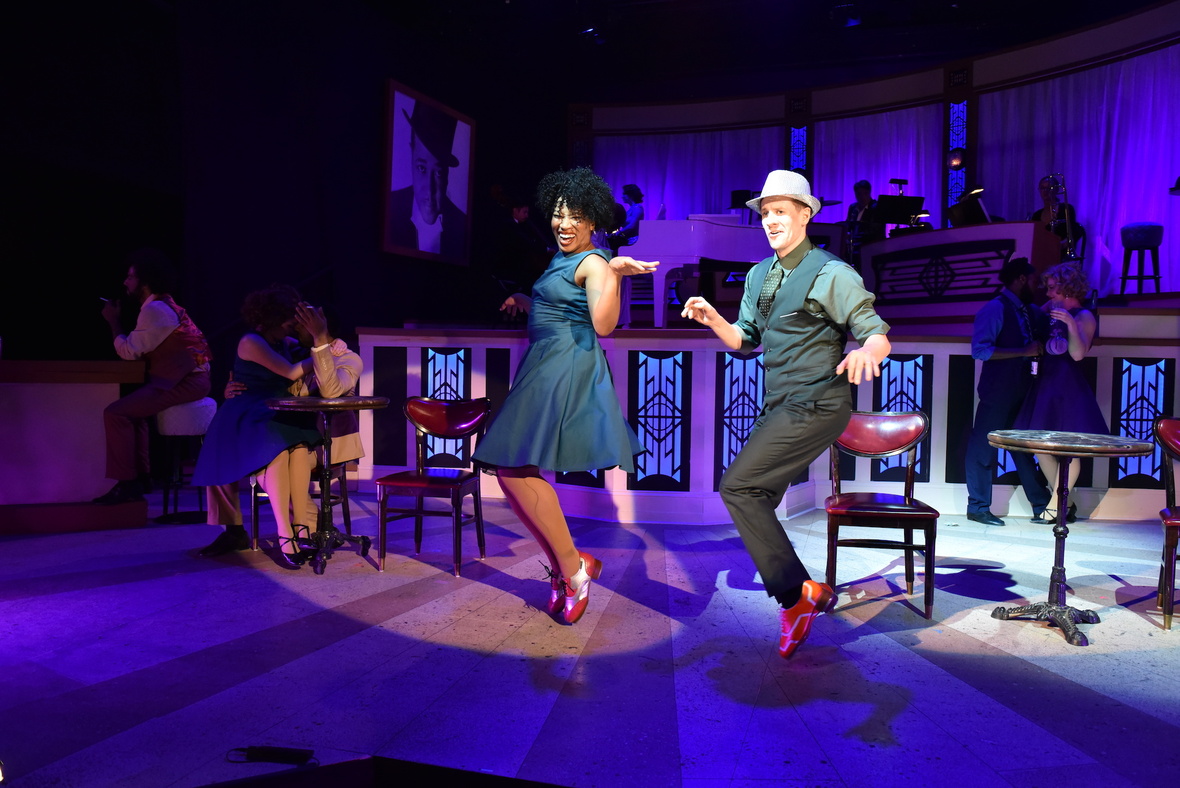
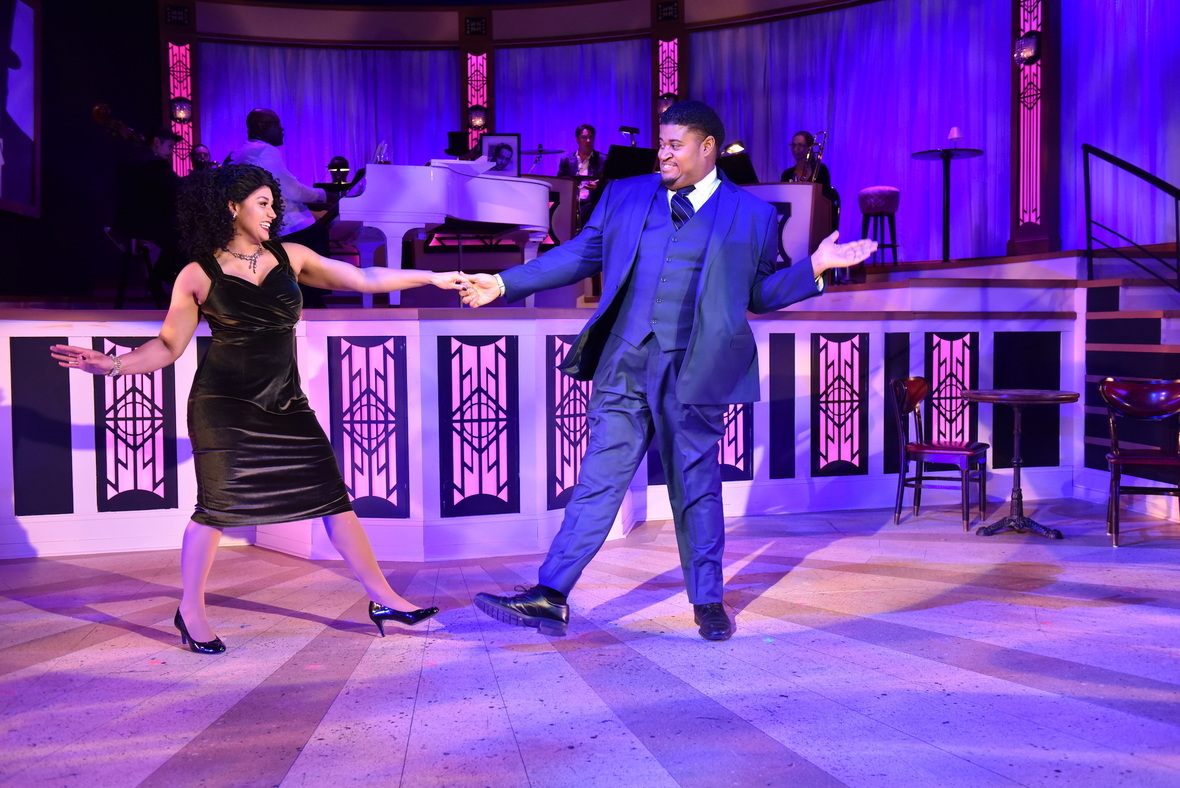
Do you know of any of Ellington’s performances in Chicago?
Brenda Didier: Duke loved Chicago and played everywhere from small blues clubs to larger venues. It was definitely a love affair between Duke and Chicago from the start and continued into his final years. Here is an excerpt from “Duke Belonged to Us” from the Chicago Tribune by Howard Reich dated May 3, 1998:
Chicagoans flocked to Ellington’s concerts to the very end, whether he was serenading listeners at the First National Bank plaza in ’73 (“Even rush hour slowed down and relaxed,” the Tribune reported) or in the last concert of his life, a 90-minute drive from the Loop, at DeKalb’s Northern Illinois University on March 20, 1974.
“I went into his hotel room before the concert, and tried not to show my shock at how he looked,” remembers jazz educator Ron Modell, who knew that Ellington was dying of cancer. “He was sitting on the bed and slumped over, but he got up to greet me. When I went to my seat (in the auditorium), I told my wife I didn’t think there was any way he could play a concert that night.
“And yet, when he hit that stage, he looked like there was nothing in the world wrong with him, he sounded fantastic at the piano, the band was great, his banter was as good as it ever was.”
Ellington never played a complete concert again, but with his death, on May 24, 1974, at 75, his stature seemed only to rise, perhaps nowhere more than in Chicago.
In August of the same year, Chicago jazz singer Geraldine de Haas and others organized a Grant Park tribute to Ellington that grew in size and stature every year, eventually blossoming into the Chicago Jazz Festival (which, in turn, spawned the blues, gospel and other summer music festivals). So Chicagoans who today munch their way through Taste of Chicago and dance in the aisles during the Viva! Chicago Latin Music Festival may not know it, but they have Duke Ellington to thank for their merriment.
“There was no doubt Duke loved Chicago madly,” says longtime Ellington drummer Louie Bellson, evoking a line that was Ellington’s calling card: “Love you madly.”
“One night in December, when we were playing the Blue Note – and it was 25 below zero – we were stunned to find out the place was packed,” Bellson recalls. “That’s when we realized how much Chicago loved Duke.”
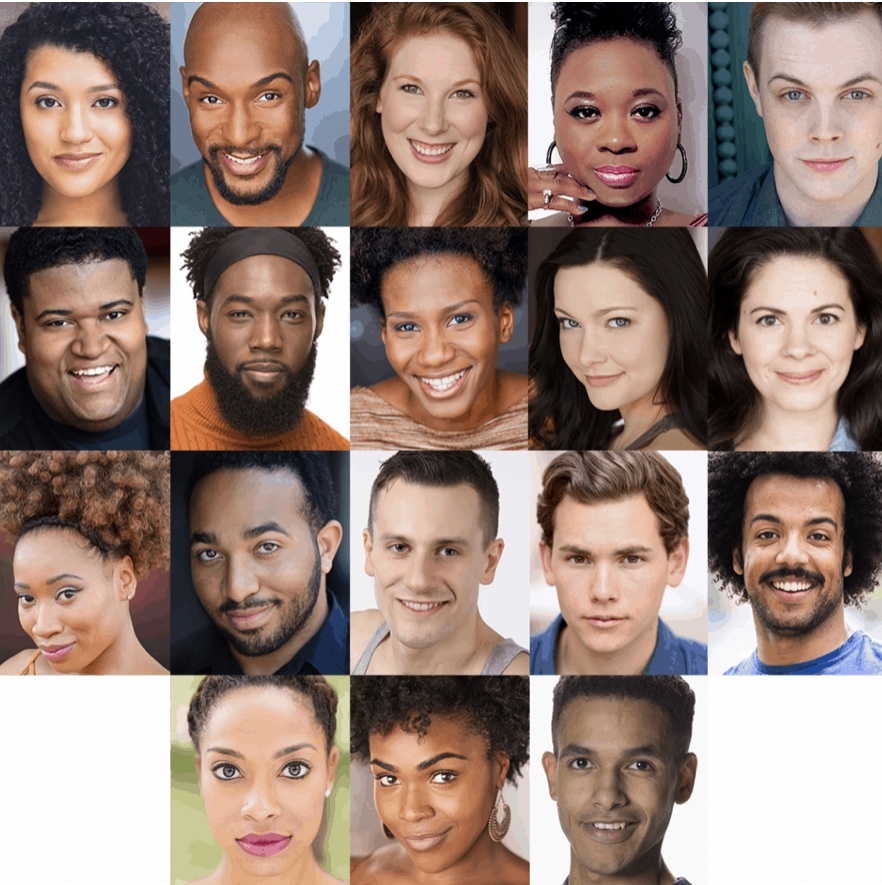
What’s your favorite Duke Ellington song?
Donterrio Johnson, performer: Take The “A” Train is my favorite Duke Ellington song. The Ella Fitzgerald version was my first introduction to a vocalist scatting during a song. I’m also incredibly in love with the intro of the song and how it was orchestrated to sound like a train.
Lydia Burke, performer: My favorite Duke Ellington song is In a Sentimental Mood. My dad introduced me to Sarah Vaughan’s rendition of the song when I was really young and I’ve loved it ever since.
As performers, how do you get in the mindset and framework of establishing the Ellington era?
Donterrio Johnson: I personally like to watch video clips and sounds clips of artists from the era. Once I enter the theater for that night’s performance I only listen to Duke’s music. It transports me back instantly.
Lydia Burke: During the rehearsal process, there was a lot of discussion with Brenda, Flo and Jermaine about how and why Duke Ellington wrote each of the songs and how it reflected what was happening in his life. Just knowing what was happening for him at the time really helped me get into the mindset of the era.
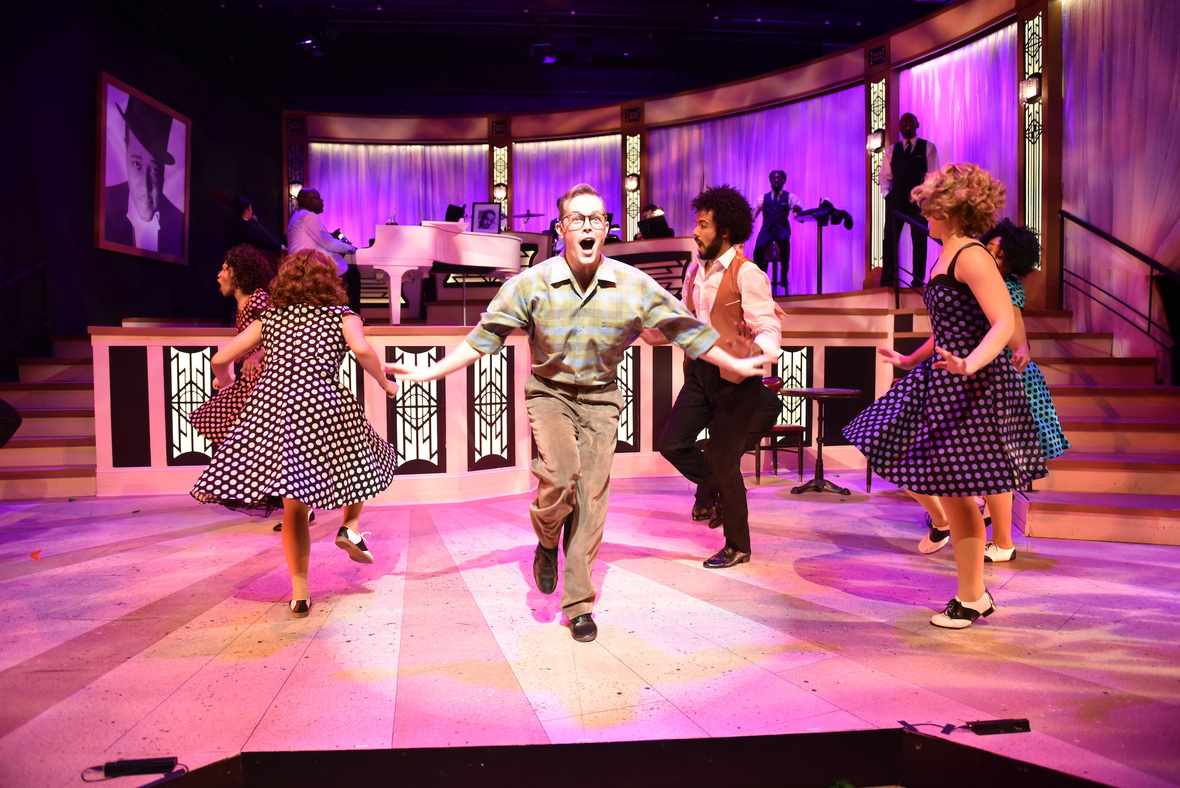
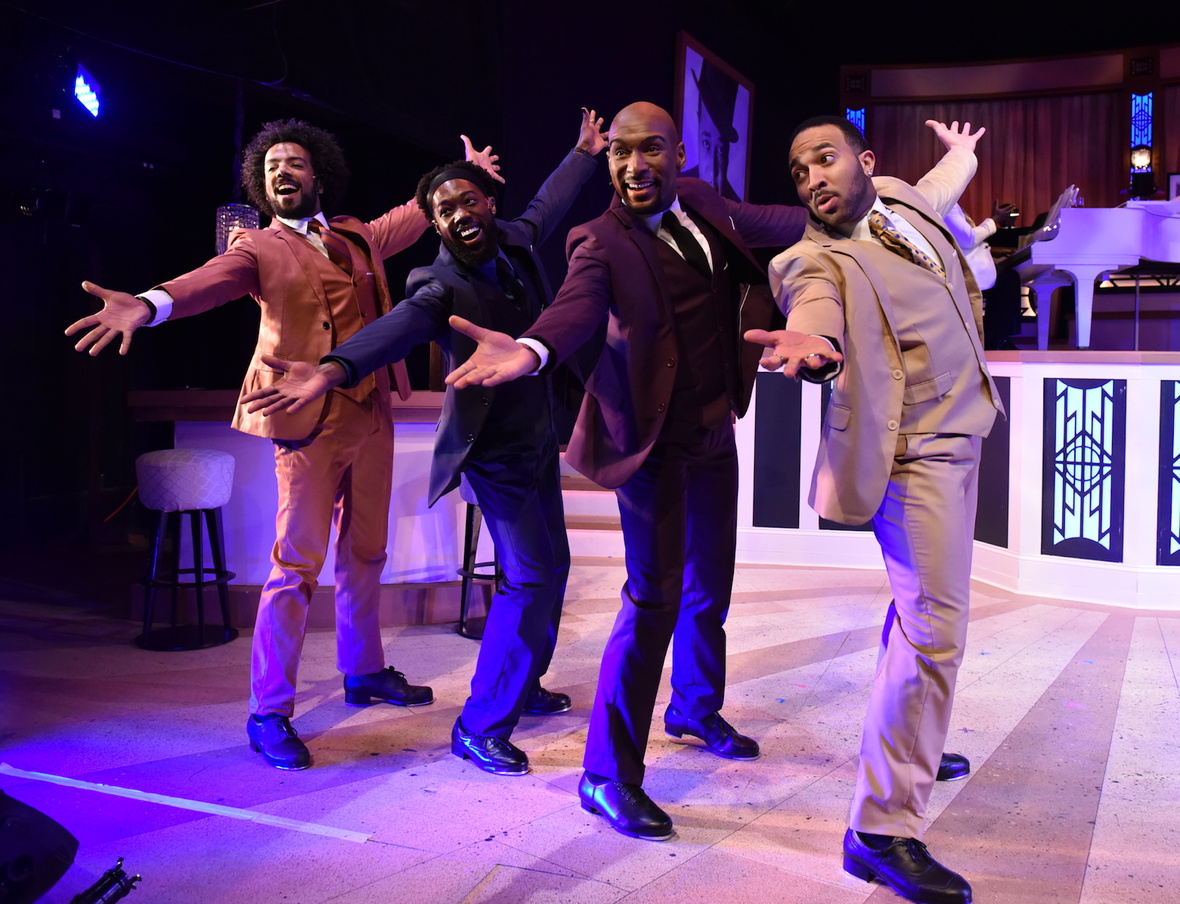
How did Ellington keep such a band together in his era?
Jermaine Hill: Ultimately, the success of his band had to do with the brilliance of his compositions and his orchestrations. In the late 1950s and early 1960s, as rock and roll was becoming the popular music of the day, his band continued to enjoy international success – they were booked all over the world.
Whereas other bands faded away, Duke Ellington’s music was still in high demand, which is why the band continued to be popular. Also, by all accounts, Duke Ellington ran his band with an element of discipline, but he was never draconian – it was always through joy, laughter, and great respect for his musicians.
